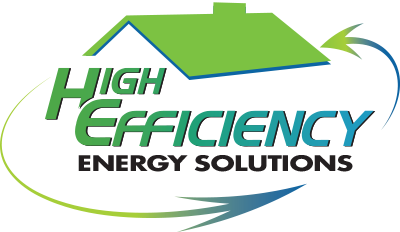Water heaters come in many different forms, varying from storage tanks to tankless, solar, and more. Each water heater has its own advantages and disadvantages in regard to capacity, energy efficiency, and other factors.
Are you a home or property owner looking for the right water heater for you? Are you unsure what options are out there?
Water heaters are an important fixture in your home! Keep reading for a comprehensive guide to water heaters.
What Is A Water Heater?
Water heaters are a common plumbing fixture in homes, heating water for different uses like cooking, bathing, and other things. The water is heated using a heat transfer process and is warmed above its beginning temperature.
Most domestic water heaters are heated with either electricity, natural gas, a heat pump, or in some cases, solar energy. Water heaters come in many different forms, with different methods of storage and heating.
Types Of Water Heaters And Their Advantages And Disadvantages
Water heaters can vary greatly in features and size, depending on the needs of a home or building, and all have their own pros and cons. Learning the differences in water heaters can help you be better prepared to make a decision about what water heater you would prefer.
Here is a list of the different kinds of water heaters and their advantages and disadvantages:
1. Storage Tank Water Heater
These water heaters offer ready storage of hot water, kept in a large tank reservoir, suitable for everyday use. These storage tanks hold the water until the water is needed for whatever use, and can hold from 30-80 gallons of water.
Storage tank water heaters are very common and are usually heated by electricity or gas. When cold water enters the tank, it is warmed to a set temperature, and then stored in the tank. If the water temperature drops, the tank will then reheat again.
Advantages:
- Relatively affordable to purchase and install
- Vary in sizes to suit your needs
- Hot water supply is ready and available
Disadvantages:
- Only offer a limited supply of hot water for longer periods of time
- Life expectancy ranges from ten to fifteen years
- Not very energy efficient
2. Tankless or On-Demand Water Heater
These high-powered water heating systems heat water directly without the use of a storage tank. They’re less than half the size of a normal water heater and supply a continuous supply of water due to their instant heating function.
The water is heated by passing through a series of high-powered heating coils in the system, and the water heater is generally fueled by gas or electricity.
Advantages:
- Heats cold water on demand
- More energy efficient than storage tank water heaters
- Can be mounted on a wall and take up less space
Disadvantages:
- Best for homes that are powered by gas, as electric models can require a costly upgrade to a building’s electrical capacity
- More expensive to purchase and install than storage tank water heaters
- A more limited water flow rate than other water heaters, not recommended for large families or households
3. Heat Pump (Hybrid) Water Heater
These water heaters work using a heat pump system to move heat from one place to another, instead of using energy from fuel to generate it, resulting in higher energy efficiency. The heat pump can move heat from the ground and the air into the storage tank, readying the hot water.
Due to the heat pump and the insulated water tank, the size of these heaters is typically larger than most other water heaters. Due to relying on ambient heat, these sorts of heaters are not typically recommended for cold climates.
Advantages:
- Use around 60% less energy than standard electric water heaters
- Save you money over the long term from savings on energy costs
- Environmentally friendly and reduce your carbon footprint
Disadvantages:
- Don’t work well in cold environments, recommended for warmer climates
- Require a large space to install, up to 1,000 cubic feet of space
- Expensive upfront purchase and installation costs
4. Condensing Water Heater
Condensing water heaters work by using a second heat exchange process, capturing heat from exhaust gases that would typically go out the flue. This heat is then blown back into the system through a coil at the bottom of the unit and is used to preheat incoming cold water.
Due to the use of gas in this system, it is necessary for these heaters to be installed in homes with access to gas, and it’s best for homes that use gas as their primary energy source.
Advantages:
- Environmentally friendly
- Less expensive operating costs
- Highly energy efficiency due to the use of normally wasted gas
Disadvantages
- Not recommended for homes without a source of gas
- More expensive to maintain due to complex system
- Expensive to purchase and install
5. Solar Water Heater
These water heaters work with solar energy. Cells mounted on the roof absorb the sun’s heat and move it into a fluid in a closed-loop system that connects to the water heater tank. This can help with energy efficiency and reduce one’s carbon footprint.
Due to the reliance on the sun’s rays, solar water heaters are not as efficient on shady days and may need a reliable backup for water heating. They are not generally recommended for areas with very little sun.
Advantages:
- Environmentally friendly renewable energy water heating
- Can save money in the long term due to lowered energy bills
- Generally low maintenance
Disadvantages:
- Can be very expensive to install
- Not very useful on cloudy days and require a backup energy source
- Not recommended for shaded areas and climates
Conclusion
Water heaters come in a wide variety with all their own strengths and weaknesses. Learning the names, functions, and pros and cons of these options can help you make your best-informed choice when perusing the market of water heating systems.



